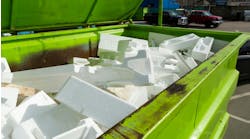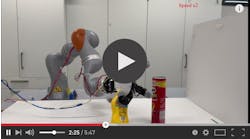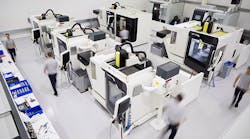In today’s assembly floors and manufacturing centers, CNC machines are among the most sought after devices. Computer Numerical Control (CNC) devices include mills, lathes, drills, and nearly any other bit of machinery a manufacturing floor needs. CNC technology allows machines to be programmed to perform a wide range of operations according to exact specifications. The same operation can be repeated, allowing manufacturers to produce goods created with the exact same process every time, improving cost-effectiveness and efficiency.
How CNC Machines Work
The beauty of modern CNC machines lies in their ability to be almost completely automated. An operator employs computer-aided design (CAD) software to turn an image of the final product into a program which the machine can then execute. Much depends on the initial programming; a CNC machine will attempt to execute the program exactly as entered, meaning that a mistake in the program will result in the wrong product.
Depending on the complexity of your product manufacturing process, modern machines may perform more than one action. A CNC lathe may also be able to employ a milling head, allowing more than one process to be done on the same part without any changeover. Advanced machinery may contain robotic hands used to transfer raw materials from one manufacturing stage to another.
In addition to lathes, mills, and the normal machine shop tools, CNC-equipped machines include 3D printers, wood routers, turret punchers, embroidery machines, glass cutters, and others. Each machine performs a different role in the manufacturing process, but each one can be operated with CNC technology.
Benefits of CNC Automation
CNC offers a wide range of benefits over “traditional” machines that require an individual operator. These include:
- Efficiency
CNC machines are capable of high degrees of precision, reducing the waste from each workpiece. Reducing waste material decreases the cost of production. Because they operate without direct human intervention, CNC machines are also available at any time of day - a CNC-equipped machine can work around the clock!
- Speed
CNC machines combine several manufacturing steps in the modern industrial process. Increasing efficiency can dramatically reduce the amount of time it takes to finish production. In addition, CNC machines can perform individual actions in the manufacturing process far more quickly than the average human.
- Safety
CNC machines act independently once the instructions have been programmed. The operator is not involved once the CNC program is initiated. This makes CNC automation an ideal technique for manufacturing processes that involve corrosive or toxic substances, extremely high temperatures, and other u factors that pose a danger to workers.
- Consistency
CNC automation machines can do the same job precisely the same way for twenty-four hours a day, each day of the year. They only need occasional downtime for repair and maintenance.
- Complexity
A CNC machine can follow all the programmed instructions accurately, down to the most minor details. This makes it possible for manufacturers to make products with an ever-increasing degree of complexity and precision.
- Capacity
CNC machines can produce high quantities of products repeatedly and continuously, with products that are nearly identical. With the exception of machine breakdowns or errors in programming, CNC technology eliminates user error. In turn, capacity goes up, since the machine runs longer and can handle more parts.
- Simplicity
One human operator can oversee multiple CNC-equipped machines. Nor does that operator need to be highly-skilled, since the machine does the actual cutting, stamping, drilling, or whatever other manufacturing processes are required. This leads to reduced labor costs.
There are some disadvantages to CNC technology, the most notable of which is the potentially prohibitive cost of outfitting an entire factory with CNC automation. Despite a high start-up cost, many CNC machines make up for their initial costs by reducing material wastage, enhancing efficiency, and avoiding human-caused errors. CNC automation offers long-term savings for manufacturers across the industrial sector.
What Is the Future of Automation?
CNC automation is only now coming into maturity, with manufacturers developing new and more efficient ways of using this technology each year. Currently, research experts are attempting to find a way of integrating CNC machines with advanced robotics, with potential applications all across the industry. robots that are used in packing and moving finished goods. Such a breakthrough would streamline the manufacturing process.
Further networking between CNC machines will also be an important consideration for manufacturers. One day, a single control panel might be sufficient to carry out a whole manufacturing operation.
The invention of the CNC 3D printer is another crucial development in the field of CNC automation. Not only can CNC be used on machines that remove material, like lathes and mills, but with 3D printing, CNC can help restore missing material. And with a comparatively low cost, the CNC manufacturing process will be made more decentralized and personalized.
CNC automation has played a massive role in improving modern manufacturing industries. Different companies use CNC machines in different ways depending on the company’s goals, but it is apparent that CNC machines have largely driven human-operated machinery off the manufacturing floor.










